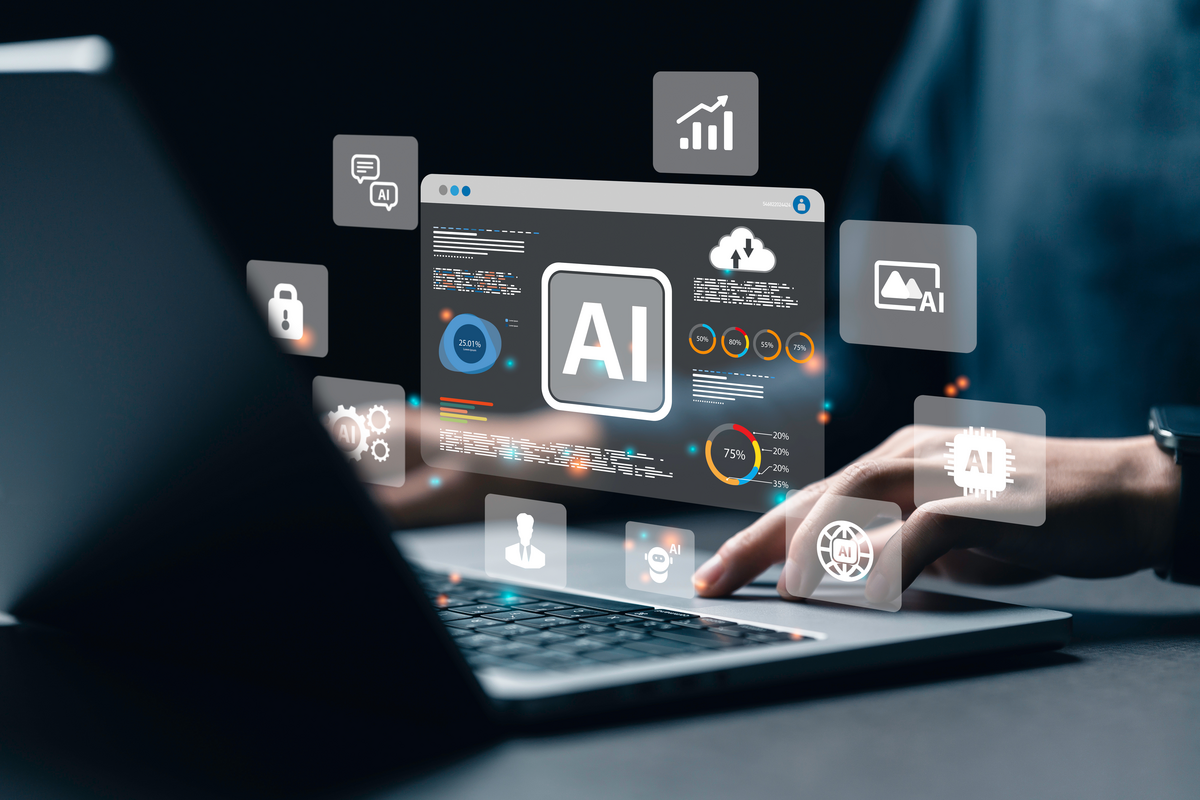Apple (AAPL 1.04%) is scheduled to announce its fiscal year 2025 third-quarter results on Thursday, after the market closes. Investors will almost certainly focus more on what management says during the earnings call than they do the Q2 results themselves.
But if you're thinking about buying Apple stock, there's another earnings call to which you might want to pay attention. Google parent Alphabet (GOOG 0.85%) (GOOGL 0.83%) provided its second-quarter (Q2) update last week. And anyone considering investing in Apple needs to hear what Google's CEO -- who is also Alphabet's CEO -- just said.

Image source: Getty Images.
Parsing Pichai's comments
During Alphabet's Q2 earnings call, an analyst referenced Google's partnership with Warby Parker (WRBY 0.34%) to develop AI glasses. He then asked Sundar Pichai, CEO of both Alphabet and Google, if he could picture a scenario where cellphones aren't central to people's experience.
Pichai's answer was interesting. He first noted that AI will "drive new experiences" and will "spur a whole new wave of innovation." He said that Google is "super excited" about its investment in AI glasses. Pichai believes the devices will "be an exciting new emerging category."
He then answered the question more directly. Pichai said, "But I still expect phones to be at the center of the experience for the next two to three years at least. And so I still think that's going to be -- phones would continue to be at the center of the consumer experience. But we are excited about the emerging categories as well."

NASDAQ: GOOGL
Key Data Points
I think Pichai's comments are similar to a Rorschach test, a psychological assessment where subjects look at inkblots and describe what they see. Some could focus more on the Google CEO's inclusion of the words "at least." They could interpret his remarks as good news for Apple, since they imply there will be no existential threat to the iPhone for at least a few years and perhaps much longer.
Others, though, might note that Pichai used a relatively short time frame as his baseline ("two to three years") instead of a decade or longer. This perspective implies that the days of the iPhone being at the center of the consumer experience are limited, regardless of exactly how long Apple's top product has left.
Why it's important for investors now
Why is what Google's CEO said important for Apple investors now? As the top executive of one of the leading developers of both smartphones and AI glasses, Pichai arguably has better insights than most into what might happen in both markets.
More importantly, Apple's fortunes currently hinge on its iPhone ecosystem. Any threat to the iPhone, especially one that could conceivably be as imminent as two or three years away, could change the dynamics related to owning Apple stock.

NASDAQ: AAPL
Key Data Points
In Apple's fiscal 2025 first quarter, iPhone sales made up 49% of total net sales. However, the product's impact is even greater than that. A significant portion of services revenue, which comprised almost 28% of total sales, came from iPhone users. Part of the nearly 8% of total sales generated by wearables, home, and accessories stemmed from Apple Watches, which connect to...iPhones.
Pichai didn't sound an alarm as loudly as some industry observers have. However, his comments nonetheless underscore the critical need for Apple to successfully navigate the transition from smartphones to the next new thing -- whatever it may be and whenever it may arrive.
Listen to what Tim Cook says, too
When Apple gives its quarterly update later this week, you'll probably hear some people talk a lot about how the company is handling the Trump administration's tariffs. Others might focus on whether or not new generative AI capabilities for Apple Intelligence will move the needle. While those are key short-term issues, I think the most important thing to listen for is anything related to Apple's strategy for new devices, especially AI glasses.
To be sure, the company's management team rarely reveals many details until they're ready to launch a new product. However, whether or not it makes sense to buy Apple stock right now depends heavily on the company's post-iPhone strategy.
I predict that Apple will be able to develop AI glasses that consumers love. I fully expect the company will remain successful for a long time to come. But investors should pay attention to what Apple CEO Tim Cook and other executives say (and don't say) about what might come after the iPhone. It could be important to Apple's investment thesis.






